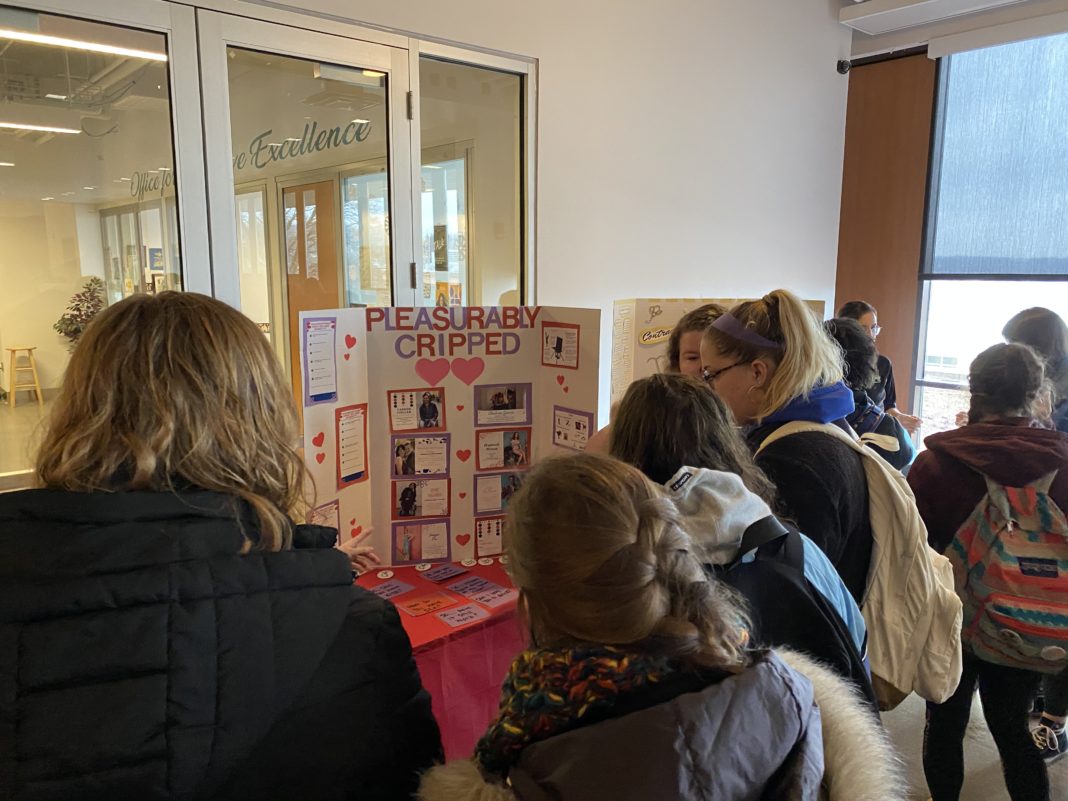SRU’s Women’s Center and Pride Center collaborated with the H.O.P.E. (Healthy Outreach through Peer Education) Peer Educators, Tuesday, Feb. 11, in the Commuter’s Lounge for SexU: An Intersectional Take on Sexual Health in hopes of educating the student body on sexual health and related topics.
Erin O’Connor, the graduate assistant for both the Women’s Center and Pride Center, presented the event’s primary purpose as one of education. Oftentimes, O’Connor said, people shy away from conversations surrounding sexual education at even the most basic level.
“What we’re trying to do is bring awareness and education to various aspects of sexual health,” O’Connor said. “We touch on subjects that aren’t as commonly discussed, such as contraceptive usage, transexual health, disabilty and sex, orgasms and their health benefits.”
The event featured several tables equipped with pamphlets and informational trifolds on topics such as contraceptive methods, disability in sex, and trans health, acommpanied by small activities — a spin-the-wheel orgasm trivia game, for instance. Students who visited each station could check off a card given to them when entering, which they could then deposit into a basket at the entrance for a chance at a raffle prize.
“The goal was to focus on things that aren’t commonly discussed and also might be uncomfortable for some people to discuss and to put them in a much more engaging and comfortable setting for students,” O’Connor said. “Talking about orgasms is often very uncomfortable for people — they don’t really wanna do it — and very few people have conversations about what disability in sex looks like.”
O’Connor said that combatting discomfort was a core focus during the developmental stages of the event. The Women’s and Pride Centers worked closely with H.O.P.E. to develop activities which could be both engaging and educational.
“A lot of it was brainstorming to find sexual health topics that aren’t commonly discussed, and a lot also came from our students — we both have incredible student staffs,” O’Connor said. “They then got to develop the activities and educational material that they wanted to see at this event, such as the crafts and games, to help make it more engaging and inviting for students to come and learn about these things.”
O’Connor supervised the staff during the development of the event, keeping track of materials, logistics, and anything else on what she called the “back-end support” area.
O’Connor’s hope for attendees was that, at the very least, they can feel a little less awkward and a little more educated in terms of sexual health.
“At the end of the day we want them to walk away knowing something that they didn’t know walking in,” O’Connor said. “Hopefully, it can even be a jumping-off point to starting those conversations with other people.”








